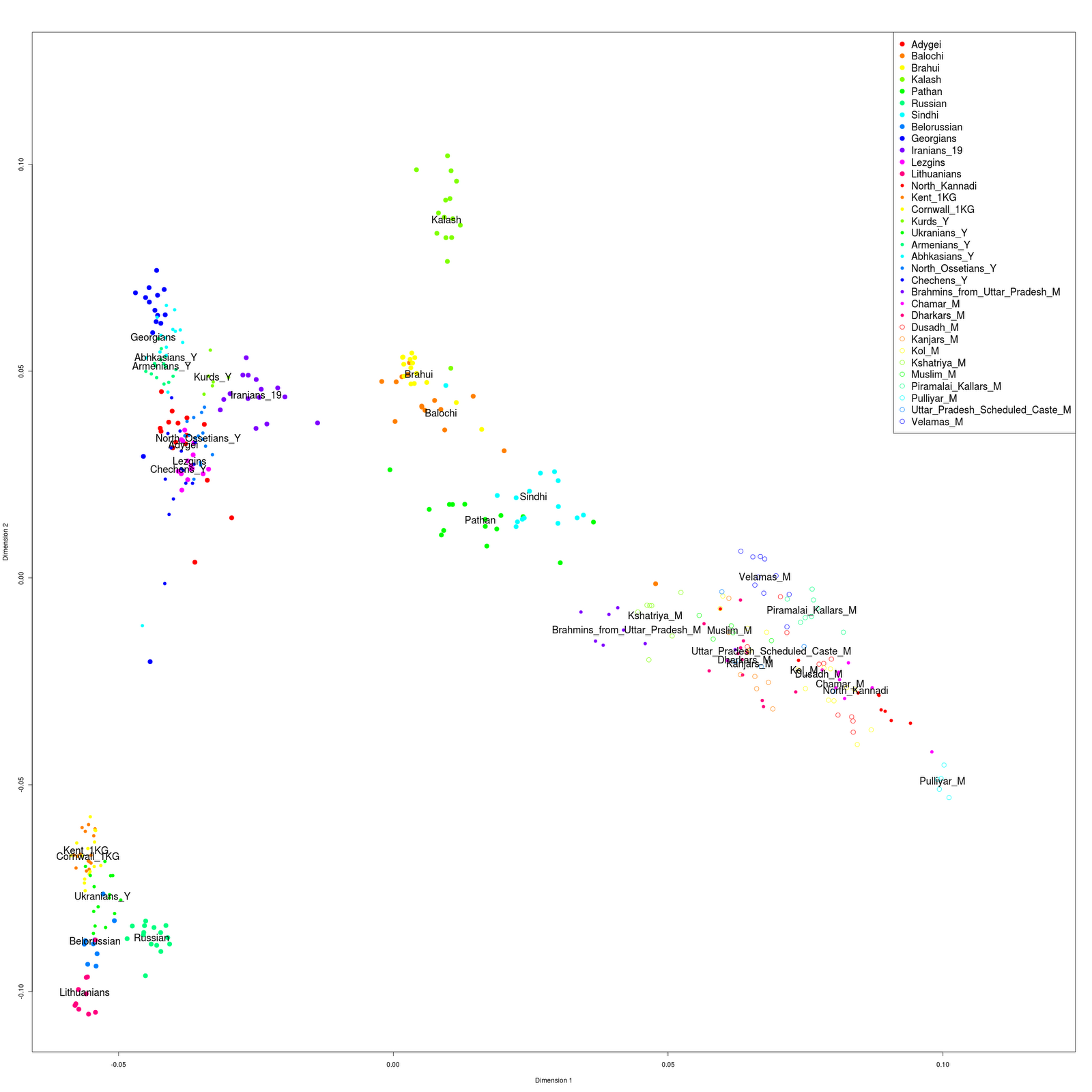Kamikaze Pilot
BANNED

- Joined
- Jan 16, 2013
- Messages
- 5,241
- Reaction score
- -66
- Country
- Location
Let's compare the psyche and nature (P&N) of current inhabitants of Indus region, the P&N of Indus inhabitants of historic times and P&N of Bharatis.
I call this comparison as the test of behavioral resemblance. In some aspects, Pakistanis resemble closely with the Indus people of historic times while in other aspects, Bharatis are more similar to that hypothetical community which resided in Indus during ancient times.
I am pondering over this theory with an unbiased and impartial mindset. So let's start with the point favoring Pakistanis.
Now this developments sound more like Bharti than Pakistani. I have not heard of modern Pakistani monks proselytising in this "non-violent" style. It is Bharati style. You don't believe me? Let me state an example.
My point is that just as children are physically and mentally similar to their parents, the current generation too should be similar to the ancestors. Descendants should be similar to earlier generations.
I call this comparison as the test of behavioral resemblance. In some aspects, Pakistanis resemble closely with the Indus people of historic times while in other aspects, Bharatis are more similar to that hypothetical community which resided in Indus during ancient times.
I am pondering over this theory with an unbiased and impartial mindset. So let's start with the point favoring Pakistanis.
- Now that king Porus and his army are so reminiscent of Pakistanis – resilient, courageous, determined and terrific warriors. This gives reasons to believe that indeed today's Pakistanis are descendants of IVC dwellers. It has been elaborated in the below quote.
Porus or Poros (from the Greek Πῶρος, Pôros), was a king of the Pauravas whose territory in Ancient Punjab spanned the region between the Hydaspes (Jhelum) and Acesines (Chenab) rivers in what is now the Punjab. Porus fought against Alexander the Great in the Battle of the Hydaspes, thought to be fought at the site of modern-day Mong, Punjab. Alexander was however greatly impressed by his adversary and not only reinstated him as a satrap of his own kingdom but also granted him dominion over lands to the south-east extending until the Hyphasis (Beas).
Alexander entered India in 327 BC, encountering some of the toughest fighting of his career in the crossing. None of the Greeks had ever encountered anything to prepare them for India. The terrain, the monsoons, the fierce tribes, all combined with the long years of campaigning had taken some of the heart out of the Macedonians. In June 326 BC Alexander fought his last great battle on the left bank of the Hydaspes against Porus, one of the most powerful Indian kings. Porus was powerful both as a man and as a king. He stood seven feet tall, a widely feared ruler and warrior.
- Silk Road transmission of Buddhism: Buddhism was brought to China via the Silk Road. Buddhist monks travelled with merchant caravans on the Silk Road, to preach their new religion.
Now this developments sound more like Bharti than Pakistani. I have not heard of modern Pakistani monks proselytising in this "non-violent" style. It is Bharati style. You don't believe me? Let me state an example.
Abhay Charanaravinda Bhaktivedanta Swami Prabhupada was a Gaudiya Vaishnava spiritual teacher (guru) and the founder preceptor (acharya) of the International Society for Krishna Consciousness (ISKCON), commonly known as the "Hare Krishna Movement".
When he sailed to the United States in 1965, his trip was not sponsored by any religious organization, nor was he met upon arrival by a group of loyal followers. As the Indian freighter Jaladuta neared his destination, the magnitude of his intended task weighed on him. On 13 September he wrote in his diary, "Today I have disclosed my mind to my companion, Lord Sri Krishna." On this occasion and on a number of others, he called on Krishna for help in his native Bengali. Examining these compositions, academics regard them as "intimate records of his prayerful preparation for what lay ahead" and a view on "how Bhaktivedanta Swami understood his own identity and mission."
He has been described as a charismatic leader, in the sense used by sociologist Max Weber, as he was successful in acquiring followers in the United States, Europe, India and elsewhere.
My point is that just as children are physically and mentally similar to their parents, the current generation too should be similar to the ancestors. Descendants should be similar to earlier generations.
Last edited:
















 .
.